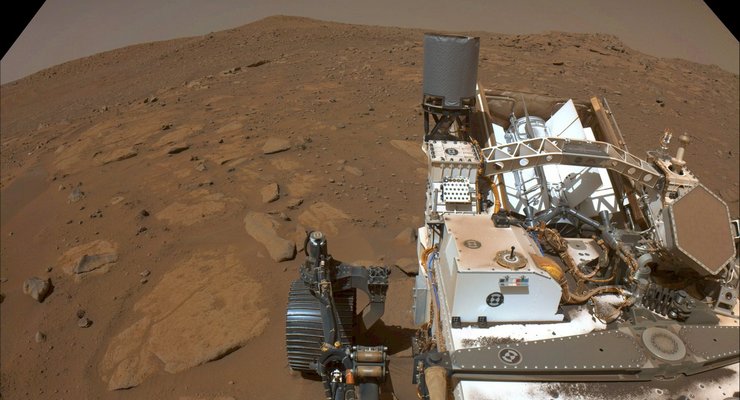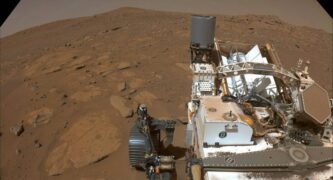
NASA’s Perseverance rover captured this view of the location where it will be parked for several weeks during Mars solar conjunction, a period when engineers stop sending commands to spacecraft at the Red Planet because the Sun may interfere with radio signals. Credit: NASA/JPL-Caltech

NASA’s Jet Propulsion Laboratory has announced a two-week pause, from November 11 to 25, in sending commands to its Mars fleet due to the Mars solar conjunction. This phenomenon, which occurs every two years when Earth and Mars are on opposite sides of the Sun, could potentially corrupt radio signals sent from Earth due to hot, ionized gas expelled from the Sun’s corona. Despite the pause, JPL’s rovers and orbiters will continue to collect limited data.
That’s not to say those robotic explorers are on holiday. NASA’s Perseverance and Curiosity rovers will monitor changes in surface conditions, weather, and radiation as they stay parked. Although momentarily grounded, the Ingenuity Mars Helicopter will use its color camera to study the movement of sand, which poses an ever-present challenge to Mars missions. The Mars Reconnaissance Orbiter and the Odyssey orbiter will continue imaging the surface. And MAVEN will continue collecting data on interactions between the atmosphere and the Sun.
While NASA usually receives health updates from the Mars fleet throughout conjunction, there will be two days when the agency will not hear from it because the Red Planet will be fully behind the disk of the Sun.
Once the moratorium (as the communications pause is known) ends, the orbiters will relay all the pending science data to Earth, and the spacecraft can begin receiving instructions again.
“Our mission teams have spent months preparing to-do lists for all our Mars spacecraft,” said Roy Gladden, manager of the Mars Relay Network at NASA’s Jet Propulsion Laboratory in Southern California. “We’ll still be able to hear from them and check their states of health over the next few weeks.”
For more about NASA’s Mars missions, visit:














 0 comments
0 comments


